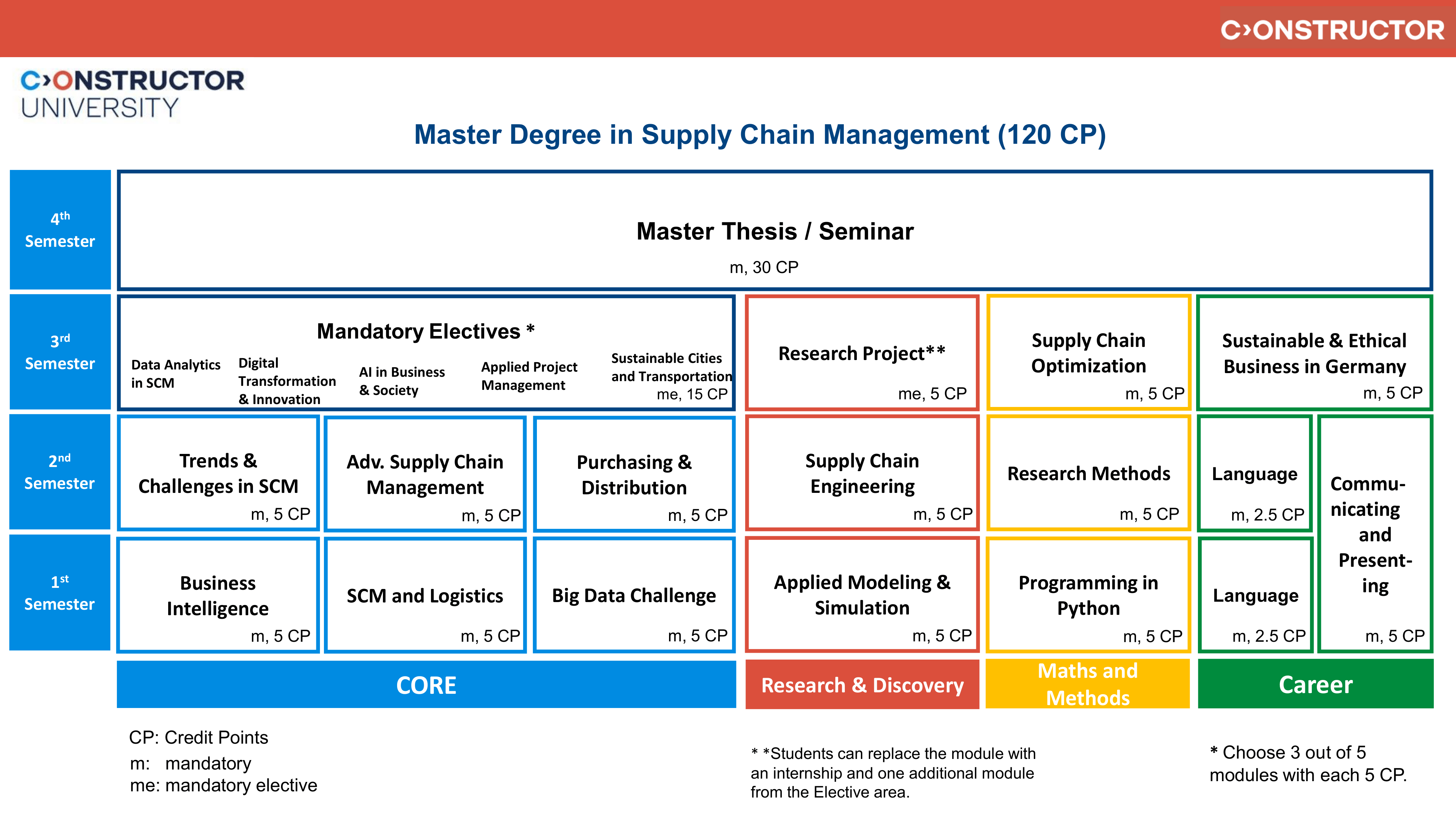The Supply Chain Management curriculum is divided into four semesters and takes two years to complete. Each semester is composed of a mixture of core, research & discovery, math & methods, and career modules, leading to a master’s thesis that may be conducted in collaboration with an industry partner.
The first semester is a foundational semester in which students from different educational and cultural backgrounds get acquainted with general methods and knowledge about supply chain and logistics as well as data analytics, programming, language and soft skills that is essential for the further development of their studies. In the second semester, there is a strong focus on the different facets of supply chains, such as design, purchasing, distribution, etc. In the third semester, emphasis is put on introducing students to complex tasks in science and industry. Here, they can combine modules that best fit their abilities and interests. Students are expected to demonstrate their capabilities to self-organize the preparation of solutions for current theoretical and practical scientific problems of an industrial partner. During the fourth and final semester students work on their master’s thesis.
The modules are grouped into five areas as outlined in the Schematic Study Plan. In the third semester, students have to choose 3 mandatory elective modules (out of 4 modules in the core area).
The areas are:
- Core Area: 45 CP
- Research & Discovery Area: 15 CP
- Math & Methods Area: 15 CP
- Career Area: 15 CP
- Master Thesis: 30 CP







